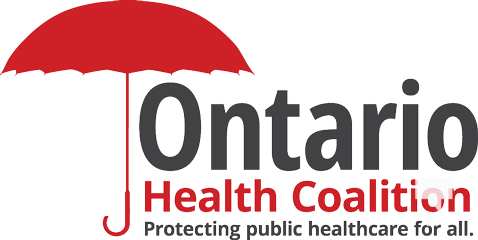
The Ontario Health Coalition, which has released major reports annually on the state of long-term care in Ontario in recent years, expressed its frustration upon reading the description of infection control practices at the facilities to which military personnel were dispatched. The Coalition has called on the Ford government repeatedly to improve access to PPE, take concrete measures to address critical staffing shortages, improve infection control and training and workplace safety, take concrete measures to isolate residents who test positive, intervene in homes that have incompetent or negligent management, and show coherent coordinated leadership in this sector rather than leaving it to voluntary arrangements between provider companies. See repeated press releases over the last two months here: https://www.ontariohealthcoalition.ca/index.php/resources-analysiscovid-19-resources-analysis-of-theford-governments-response/ (scroll to media releases). The Coalition is not alone. Advocates from the Advocacy Centre for the Elderly and other seniors’ organizations, unions and health professionals have all been speaking with one voice in calling for these measures, yet improvements have been late, inadequate, or nonexistent, and there still is no coherent strategy, coalition spokesperson Natalie Mehra reported.
“We are beyond frustrated,” she said. “Thousands of staff and residents alike have been infected with COVID-19, almost 1,500 residents and staff have died, yet we are still waiting for a coherent coordinated plan from Ontario’s government to intervene actively in long-term care homes with outbreaks.”
“Aside from individual staff transgressions, which require proper management of staff and proper training, there are clear systemic issues here. We have repeatedly raised the issue of staff being required to wear the same PPE from resident to resident or patient to patient until it is “visibly soiled”. This would have been completely unacceptable prior to COVID-19 and yet it is routinely the case in homes and hospitals that say that they are complying with Public Health Ontario’s directives and guidelines,” she noted. “Shortages of PPE and incompetent and negligent management are compounded by the leadership failure in our provincial government which should have applied the precautionary principle and taken much more active measures to improve the standard of infection control, workplace safety and access to PPE.”
“Long-term care homes were in a crisis of understaffing prior to COVID-19 and the situation has been worsened as staff have left, are off work in isolation, and as many have had to choose one home out of several at which they worked part-time,” she reported. “Stories of inadequate care levels are frequent, particularly in homes with outbreaks, but also in others. This was the case across the board prior to COVID-19, now the inadequacy of staffing and care is beyond description.”
The Coalition reiterates its call of recent weeks for immediate measures to stabilize the workforce and improve safety as follows:
“From our provincial government we need a coherent plan including concrete measures to improve PPE supply and infection control, to stabilize the workforce, and leadership and coordination to stem the tide of infections that is sweeping through our health care facilities,” reiterated Ms. Mehra from the Coalition’s call last week insisting that the following not to be delayed by a commission into long-term care:
• Better infection control including better access to PPE. Reusing surgical masks patient after patient, resident after resident, would have been totally unacceptable before COVID-19. Woefully insufficient access to N95 masks continues to be a major problem and there are shortages of other equipment. There needs to be a clear plan from the government to improve the supply of PPE or develop our own. Leaving it to industry to do voluntarily has so far been insufficient. Standards for infection control must be improved and staff need the appropriate equipment, enough supply and proper training in order to follow them. Staff who are infected must be supported to isolate at home. The directive allowing health care facilities to require staff to work who have tested positive but are asymptomatic is dangerous and should be changed. Testing of all residents and staff must be completed in long-term care homes, retirement homes, and congregate care facilities (and shelters). Testing, tracking and isolating people who test positive is shown to have stopped the spread of COVID-19 in other countries. It must happen here. Access to PPE using the precautionary principle must be implemented in long-term care, hospitals, home care and across the health care system as soon as possible.
• Ramp up testing using our province’s full public capacity. Public hospital laboratories that are not currently doing COVID-19 testing and have unused capacity should be ramping up testing. We need a clear honest plan from the provincial government that assesses our full capacity to test (including all the public hospitals, not just those that are currently testing) and immediately gets them to start getting the pieces in place to ramp up to our province’s real full capacity the testing, tracking and isolating to stop the spread of COVID-19. There must be a coherent plan to get the supply or develop it and transparency about what is happening with supply. Retirement homes are suffering serious COVID-19 outbreaks as are congregate care settings and shelters. They should be subject to the same rigorous systematic testing as long-term care homes have been.
• Understaffing in long-term care is critical and must be addressed. The provincial government cannot rely on long-term care homes in crisis to get themselves out of crisis. There must be a coherent plan, led by our government, to step in with a set of coordinated, concrete measures to get staff into the homes that have lost staffing levels due to sickness, having to choose one part-time job, staff leaving etc. Leaving it to the providers to forge voluntary arrangements among themselves is not sufficient. Staff need a permanent improvement to their wages and access to full-time hours. This cannot be voluntary and there is no path to stability without the provincial government undertaking these measures. The Minister of Long-Term Care must use her powers under the Long-Term Care Homes Act to revoke licences and appoint new management in long-term care homes that have uncontrolled outbreaks and evidence of negligence and poor practices.
• Transfers to hospitals. Where there are long-term care homes in crisis without sufficient staff to provide proper palliative care and proper care to meet residents’ needs, residents should be transferred to public hospitals which are not in crisis for safe and proper care, subject to their right to consent.
• Bring in family caregivers and retired nurses as soon as possible: Starting in areas where there has been little spread of COVID-19, with strict testing/contact tracing capacity, PPE supply and training in infection control families must be allowed back into long-term care homes. In other areas, primary family caregivers need to be able to be involved as partners in their families’ care. The pool of nurses that the RNAO has recruited to help should be utilized if they have not already been.
• Institute a minimum care standard in long-term care: There has been deep consensus for decades that the rising acuity (complexity and heaviness of the care needs) of long-term care residents requires more care. This cannot be left to operators to do on their own and resources, both financial and human, need to be provided to support this. There cannot be further delay in beginning to move to a 4-hour average minimum care level for residents in long-term care to protect their safety and the safety of staff. The coalition is also calling for the halt of any expansion of for-profit long-term care.
The Coalition is drafting a framework for the re-entry of family caregivers into long-term care homes to be released in the next few days.























